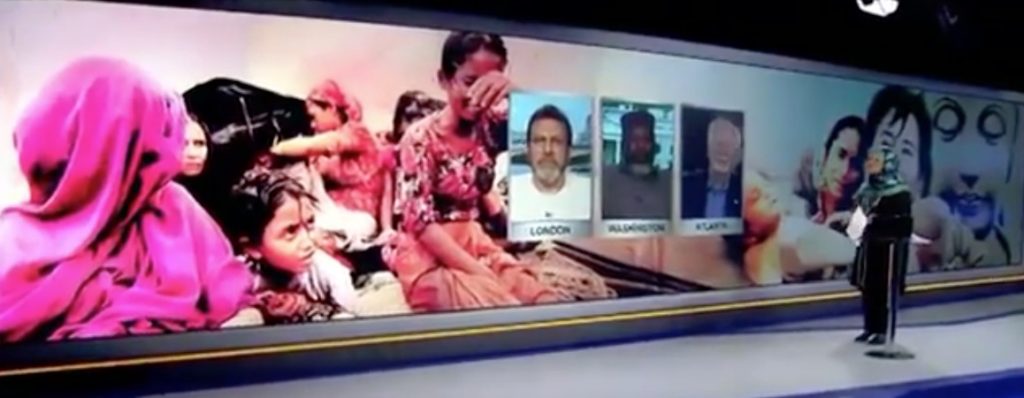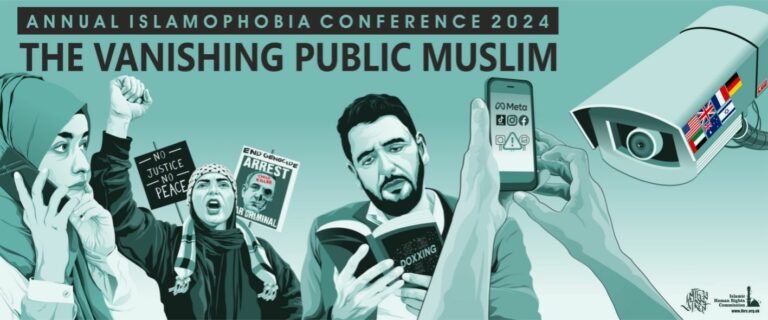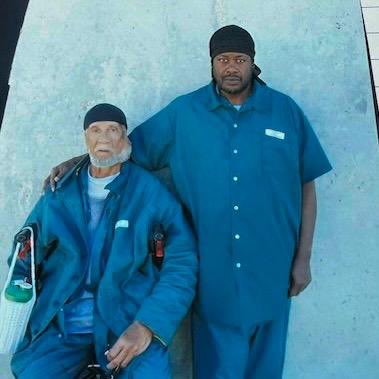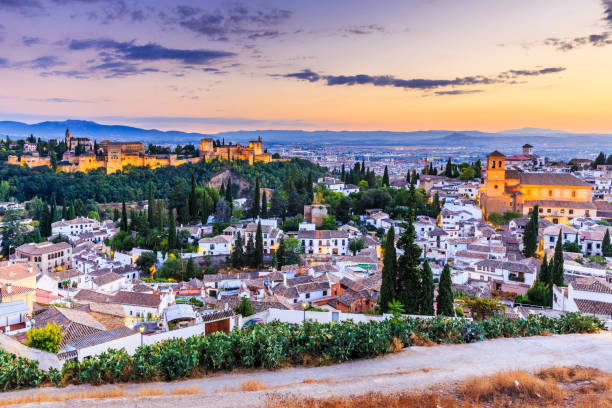Massoud Shadjareh joins News Analysis on Press TV to discuss the ongoing genocide against the Rohingya.
Watch the video below or read a transcript underneath from the Press TV website.
The United Nations High Commissioner for Human Rights, Navi Pillay says security forces are instigating violence in Myanmar, calling for an investigation into the persecution of Muslims in the country.
Reports say 650 Rohingya Muslims have been killed since June 28 during clashes in the Rakhine state in the west of the country. This is while 1,200 others are missing and 80,000 more have been displaced.
The government of Myanmar refuses to recognize Rohingyas, whom, it claims, are not natives and classifies them as illegal migrants, although, the Rohingyas are said to be Muslim descendants of Persian, Turkish, Bengali, and Pathan origin, who migrated to Myanmar as early as the eighth century.
Thousands of Rohingya Muslims are living in temporary accommodation, having fled violence.
Over the past two years, waves of ethnic Muslims have attempted to flee by boats in the face of systematic oppression by Myanmar’s government.
Press TV has conducted an interview with Abdul Alim Musa, Imam of Washington’s Masjid al-Islam, to further discuss the issue.
The video also offers the opinions of two additional guests: Massoud Shadjareh, the head of the Islamic Human Rights Commission, and James Jennings, the president of Conscience International from Atlanta.
What follows is a rough transcription of the interview.
Press TV: Now the United Nations has just called for a probe into the situation taking place in Myanmar. Imam Musa why do you think it took so long for the UN to even make a statement or to get involved and right now it’s asking for a probe that we don’t really know how long it would take from the probe to actually set up a safe haven. Why do you think it’s taking so long?
Musa: Well, a probe or a study, they do it on us in America all the time. African Americans or Latinos, they say we’ll have a commission to study oppression of people of color. This is the same way the UN is treating the people in Myanmar but what makes it so simple for the world?
It seems as though this Islamophobia, although the oppression of the people of Burma, Myanmar, the Muslims have been going on now for decades. In fact Keyhan was writing articles back in the 80s on their condition but what makes it OK for everybody anywhere in the world to attack Muslims? This Islamophobia and if we wonder why would peaceful Buddhists get involved, we believe there is some extra national encouragement or an enticement to commit these atrocities.
Press TV: What do you mean by that Imam Musa?
Musa:
Well, it’s not proven but we feel if all over the world there is attacks on Muslims and let’s say if [the people of] Saudi Arabia are Muslims and they’re worried about the people of Syria so much, while they’re not worried about the people of Bahrain, right? Then why would the same peoples be worried about what’s going on in Libya last year and not care anything about the people in Myanmar.
It seems like there is a heightened focus on destroying Muslims. In Bosnia this was a first Muslim state being born in Europe so the US and other countries put a blockade on arms to that area. Why because the Muslims didn’t have any weapons. Everybody else in what was Yugoslavia did.
Now if you look at the Muslims when the Muslims call the government to help, right? The government gets involved in killing them. In fact there was one report that three boats sank full of refugees trying to escape. Why would people be slaughtered trying to escape?
It seems like that there is a nudging by the international agencies and I mean European and even Asian. There is one point we should never forget Myanmar has been isolated for quite some time. Now with its natural resources being up for grabs, India has just signed some contracts for oil. You have China on the other side. So everybody feels like we’ll just be quiet and extract the national resources. You see this is what it points to.
Press TV: Imam Musa let’s look at what Mr. Shadjareh talked about. He talked about the prodemocracy movement and I want to look at that because we know there is Nobel peace laureate there, Aung San Suu Kyi who has been lauded by the West and much of the international community and yet either has remained silent and as a matter of fact has encouraged what is been going on by basically saying that these people need to go back to their own country.
How you do put these two together: on the one hand we have someone who is praised all the time and wanting peace and democracy but on the other hand either keeping silent or even encouraging this type of oppression?
Musa: Well, we all cheered her along for her decades of struggle and we actually pull for the whole country to come out from under this dictatorship. Although in 1982 they declared the Muslim people as noncitizens but why would she- I think brother Massoud hit the nail on the head when he talked about ultra nationalism and the bonding that’s going on between those peoples.
Why wouldn’t she take the side of justice which she has been crying for for decades is because she is a part of that bonding process and neither has she spoken out nor has her coalition spoken out.
They won several new seats in the parliament there but neither her nor her coalition has spoken out about it and I think it’s because that they as brother Massoud said, they want to look forward to a new Myanmar without the Muslims as part of the landscape.
Press TV: How likely is the international community to do this when many would say this is the same international community that has encouraged these negative images to be propagated about Muslims in general. Can people rely on that same international community now to put the pressure down that is needed to stop the killing in Myanmar?
Musa:
I think we should focus; we are Muslims; we are over a billion strong; we should concentrate on unity and cooperation between each other first, not to exclude anyone else but we should concentrate on Muslims in Myanmar. We should focus on justice for people in Bahrain, Hazara that are being killed in Pakistan, the ‘fitna’ that goes on in Syria and the people of Palestine. We Muslims should focus on justice for all including all the other issues of people around the world whether it’s Tibet or what have you but also Kashmir. We should be running the humanitarian race altogether toward justice. We don’t believe the UN is going to do anything.







